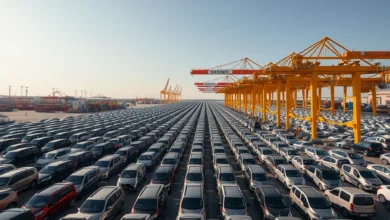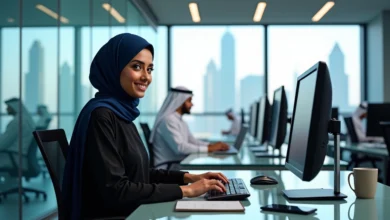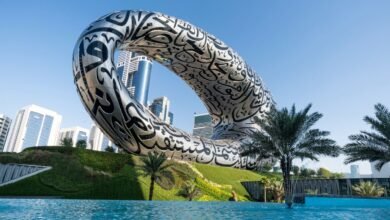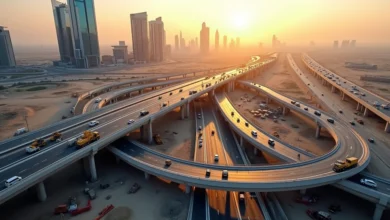
UAE’s Humanitarian Initiatives: Spreading Hope Across Continents
The United Arab Emirates (UAE) has emerged as a beacon of hope in the realm of humanitarian efforts, extending its reach across continents to uplift communities in need. With a commitment to sustainable development and disaster relief, the UAE has positioned itself as a global leader in providing humanitarian assistance. This nation’s dedication to humanitarian work goes beyond mere aid distribution, encompassing a holistic approach to address pressing global challenges.
The UAE’s humanitarian initiatives span various strategic focus areas, from emergency preparedness to long-term development projects. Through innovative funding mechanisms and international cooperation, the country has amplified its impact on humanitarian services worldwide. By empowering local communities and fostering resilience, the UAE’s approach to humanitarian support has set new standards in the field. This article explores the foundations of the UAE’s humanitarian philosophy, its key areas of intervention, and the lasting impact of its efforts on World Humanitarian Day and beyond.
Foundations of UAE’s Humanitarian Philosophy
The UAE’s humanitarian philosophy is deeply rooted in Islamic principles, national values, and a commitment to global citizenship. This foundation has shaped the country’s approach to humanitarian efforts, making it a leading force in providing assistance worldwide.
Islamic Principles of Charity
The UAE’s humanitarian work is grounded in Islamic philosophy and the Emirati culture of giving and compassion. These principles, historically ingrained in the Islamic world, have been officially promoted as unifying factors for the UAE nation and defining elements of its state identity in public diplomacy. The concept of zakat, one of the five pillars of Islam, plays a crucial role in the UAE’s charitable activities. The Zakat Fund accepts and allocates contributions to various projects and activities, ensuring that those in need receive support in accordance with Islamic teachings.
National Values
The UAE’s commitment to humanitarian work was established by its founding father, Sheik Zayed Bin Sultan Al-Nahyan, who highlighted it as a foreign policy priority and an essential aspect of Emirati identity in the 1970s. This legacy continues under the leadership of President Sheik Khalifa Bin Zayed Al Nahyan, who emphasizes following in his father’s footsteps to provide humanitarian and development aid as a key component of the UAE’s foreign policy. The country’s approach to foreign aid is guided by the idea of sustainable development and improving the welfare of all mankind, without being limited by geography, race, color, or religion of the beneficiaries.
Global Citizenship
The UAE has positioned itself as a global leader in humanitarian efforts, extending its reach across continents. For the past five years, it has been the world’s most generous donor relative to gross national income, providing assistance to more than 175 countries. The country actively works with the United Nations and its partners to achieve the 2030 Sustainable Development Goals, both domestically and internationally. The UAE hosts the International Humanitarian City in Dubai, a critical logistics and supply center for UN agencies and numerous organizations providing development and humanitarian assistance abroad. This commitment to global citizenship is further demonstrated through the UAE’s support for various UN programs and its efforts to address climate change and promote renewable energy initiatives worldwide.
Strategic Focus Areas
The UAE’s humanitarian initiatives span across various critical domains, addressing pressing global challenges with a multifaceted approach.
Disaster Response
The UAE has established a robust emergency response system to tackle crises effectively. Sanid, launched in 2009, serves as the country’s emergency volunteer program. It unites volunteers throughout the UAE, preparing them to cope with national and international emergencies. This initiative aligns with the Emirates Foundation’s strategy to achieve community resilience through empowered, equipped, and aware community members. Sanid focuses on utilizing certified and trained volunteers in the Emergency Response Sector to maximize support during crises, disasters, or emergencies.
Poverty Alleviation
The UAE is committed to realizing the United Nations’ Sustainable Development Goal 1 – no poverty. It has announced participation in funding the Poverty Reduction and Growth Trust (PRGT), allocating $200 million to expand concessional financing for low-income countries. Since its foundation in 1971, the UAE has provided substantial foreign aid to boost economic growth in developing nations and provide basic social services. It leads the list of donors in terms of official development assistance given compared to its GDP.
Climate Change Resilience
Recognizing the vulnerability of global ecosystems to climate change, the UAE emphasizes Nature-based Solutions (NbS). These actions involve working with and enhancing natural ecosystems for societal good through restoration, management, and protection. The country is actively involved in projects aimed at protecting, restoring, and sustainably managing natural coastal ecosystems to act as carbon sinks. These efforts also focus on achieving measurable greenhouse gas emissions reductions and enhancing the climate-nature policy nexus.
Innovative Funding Mechanisms
The UAE has embraced innovative funding mechanisms to support its humanitarian initiatives, leveraging both traditional Islamic principles and modern financial tools.
Zakat-based Initiatives
The UAE has integrated Zakat, a fundamental Islamic principle of charitable giving, into its humanitarian efforts. The Islamic Affairs and Charitable Activities Department in Dubai launched the ‘Social Solidarity Fund Against COVID-19,’ allowing people to support the fight against the pandemic through Zakat donations. This initiative demonstrates how traditional religious practices can be adapted to address contemporary challenges.
Crowdfunding Platforms
Crowdfunding has gained significant traction in the UAE, with platforms like ‘Together We Are Good’ in Abu Dhabi enabling community members to support government efforts in addressing health and economic challenges. The UAE has seen a rise in crowdfunding platforms, including Aflamnah for film projects, Eureeca for equity crowdfunding, and Humming Crowd Realty for real estate. While regulatory frameworks are still evolving, the Dubai Financial Services Authority has indicated plans to implement a regime for debt-based funding by the end of the year.
Impact Investing
The Gulf region is witnessing a shift towards impact investing, with investors increasingly considering social and environmental impacts alongside financial returns. This trend is particularly evident among younger Millennial and Gen Z investors, who are adopting more strategic and evidence-based approaches to philanthropy. A survey by Lombard Odier found that 81% of young high-net-worth individuals in the Middle East consider sustainability in their investment decisions, with 88% planning to increase their allocations in this area.
Empowering Local Communities
The UAE’s commitment to empowering local communities extends beyond its borders, focusing on capacity building, social entrepreneurship, and the advancement of women and youth. These initiatives aim to create sustainable development and foster self-reliance in communities across the region.
Capacity Building Programs
The Training and Capacity Institute (TCBI), established in 1988, plays a crucial role in enhancing the capacity for economic policy formulation and implementation in Arab countries. TCBI conducts specialized training courses for middle-level officials from monetary, financial, and economic agencies, helping to strengthen technical capabilities and assist in policy formulation. The institute also organizes seminars and workshops for senior officials, addressing important issues related to economic policies in member countries.
Social Entrepreneurship Support
The UAE government has opened a path for the nongovernmental “third sector” by fostering social entrepreneurship. In 2019, the Abu Dhabi government established the Authority of Social Contribution, or Ma’an, to accelerate the growth of nonprofits and social enterprises. Ma’an’s social accelerator has supported entrepreneurs working on inclusivity, mental well-being, family cohesion, and sustainability. Notable alumni include Bazaara, addressing fast fashion’s environmental impact, and the Butterfly, an advocacy agency for people with disabilities.
Women and Youth Empowerment
The UAE has made significant strides in empowering women and youth. Women occupy 66% of public sector jobs, including 30% in senior leadership positions. The UAE Gender Balance Council works to ensure Emirati women continue to play a leading role in the country’s development. Education is key to economic empowerment, with over 77% of Emirati women enrolling in higher education after secondary school. The Badiri Education and Development Academy, established by NAMA Women Advancement, provides intensive programs for female entrepreneurs to develop business leadership skills and transform their ideas into scalable startups.
The UAE’s humanitarian initiatives have made a significant impact on global communities, showcasing the country’s commitment to spreading hope and support across continents. Through its strategic focus areas, innovative funding mechanisms, and efforts to empower local communities, the UAE has established itself as a leader in providing humanitarian assistance. This approach, rooted in Islamic principles and national values, has an influence on the lives of millions, fostering sustainable development and resilience in the face of global challenges.
Looking ahead, the UAE’s dedication to humanitarian work sets a powerful example for other nations to follow. By combining traditional practices with modern solutions, the country continues to address pressing issues such as poverty, climate change, and disaster response. The UAE’s ongoing efforts to support social entrepreneurship and empower women and youth also pave the way for long-term positive change, ensuring that its humanitarian impact will be felt for generations to come.







[…] global development challenges. Theyab bin Mohamed bin Zayed and Bill Gates met to discuss ways to accelerate global development and tackle pressing international challenges. They explored new ideas to advance worldwide […]
[…] members must participate in regular safety drills and emergency preparedness training. These exercises include scenarios with major damage and casualties that help ensure quick response […]